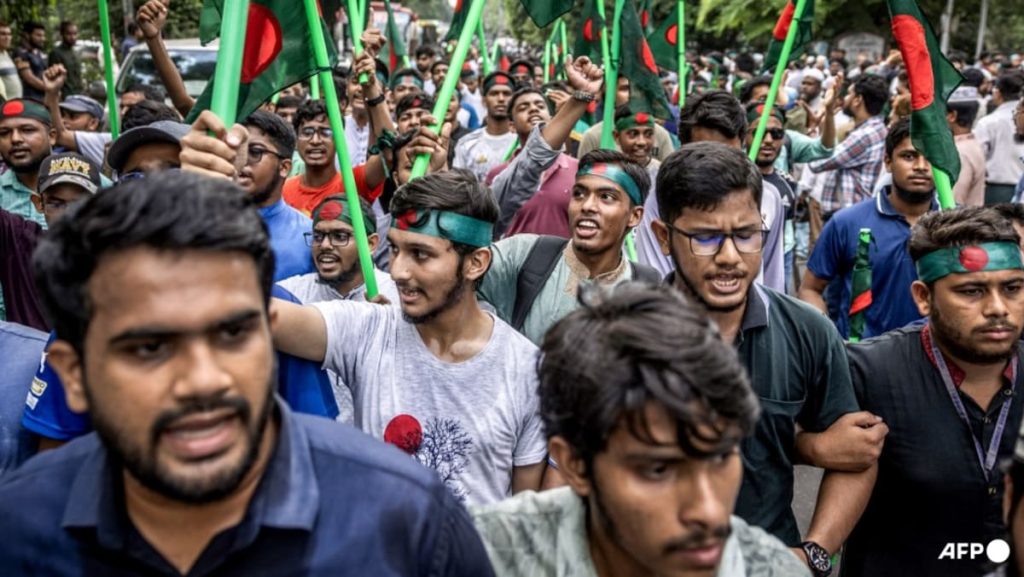Following the abrupt departure of Bangladeshi Prime Minister Sheikh Hasina, chaotic scenes erupted in the streets as hundreds of men formed a human barricade at the site of her father’s old family home, where many of her relatives were killed nearly five decades ago. The landmark, which was previously a museum dedicated to her father, was vandalized after Hasina’s fall from power. Suspicion ran high amongst the crowd, resulting in individuals suspected of supporting the Awami League being physically assaulted or escorted away from the area.
Hasina appealed to her supporters to offer prayers and floral garlands outside the landmark, marking her first public statement since leaving office. During her time in power, she was accused of fostering a cult of personality around her father, with his image appearing on all banknotes and a requirement for his portrait to be displayed in all schools, government offices, and diplomatic missions. Criticizing him online became a punishable offense, potentially resulting in a 10-year prison sentence. Her administration also mandated the participation of civil servants in public demonstrations on the anniversary of her father’s death.
The politically charged holiday marking the death of Sheikh Mujibur Rahman, Hasina’s father, was cancelled by the caretaker administration currently overseeing Bangladesh. This decision required government employees to remain at their workplaces on the designated day. The atmosphere in Dhaka on the anniversary was notably different, with sounds of traffic filling the air instead of the usual blaring of Mujib’s speeches and praise songs. The tumultuous events leading up to Hasina’s removal from office culminated in a murder case being opened against her and several of her close allies, along with police officers implicated in last month’s unrest. The former Prime Minister called for an investigation into the violence that transpired during the protests and demanded that those responsible be identified and punished.
Nobel laureate Muhammad Yunus, known for his pioneering work in microfinance, returned to Bangladesh to head a temporary administration tasked with facilitating democratic reforms and organizing elections within a few months. The new caretaker administration, composed mostly of civilians with a lone retired brigadier general, faces the challenge of addressing the widespread human rights abuses that occurred under Hasina’s leadership. Yunus expressed his intention to work with the UN human rights chief to establish an investigation into these abuses without providing further details. As Bangladesh enters a period of transition and recovery from recent political turmoil, the focus remains on justice, accountability, and the eventual restoration of democratic processes in the country.


